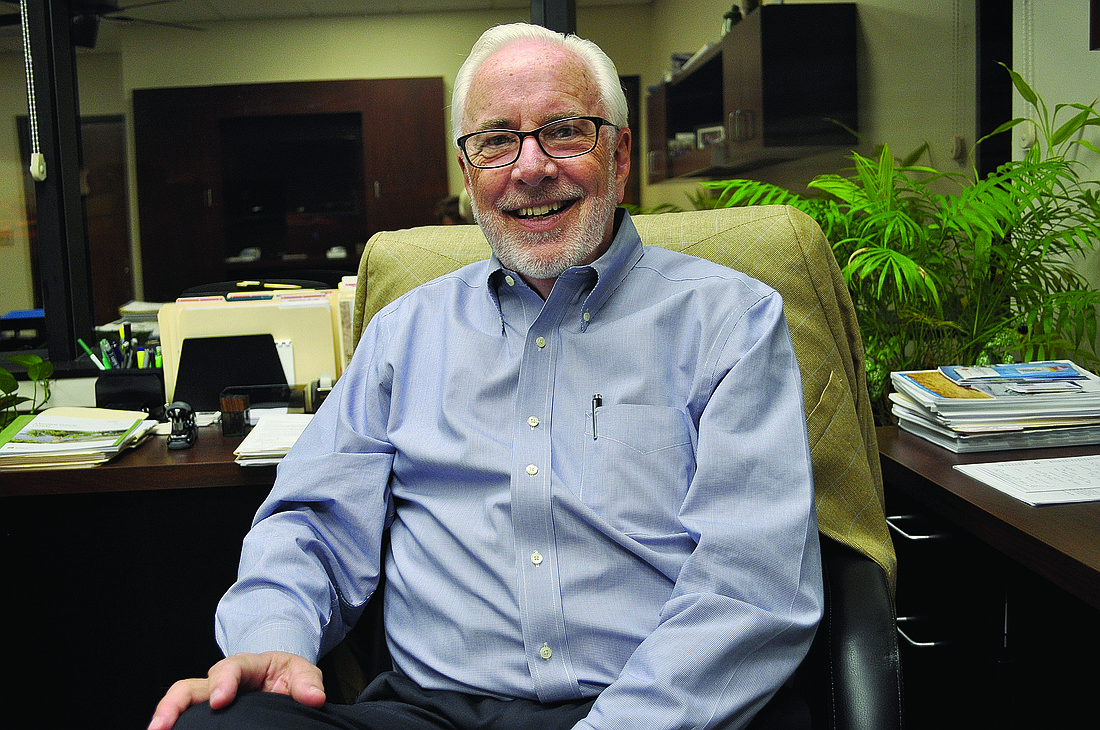- April 18, 2024
-
-
Loading

Loading

EAST COUNTY — Manatee County officials and local health care professionals agree there is no easy solution as they brace for a potential health care crisis.
A health care trust fund that provided about $9 million annually for medical and mental care to people in need will be depleted in 2015.
Manatee commissioners have allocated about $14 million a year from property tax collections for similar needs, in addition to that $9 million.
In 2014, commissioners will decide whether to continue funding the $9 million via another source, such as higher taxes; cut other parts of the budget; or discontinue the $9 million funding and let other sources and providers fill the gap.
“This is an overall health care problem,” Manatee County Administrator Ed Hunzeker said. “It is not a poor people problem.”
Finding solutions
A study into the region’s health care industry proposes two goals: to improve access to primary care through a new delivery model and to build community-based interventions.
“It’s about prevention and wellness and access to care,” said Dr. Jennifer Bencie, chairwoman of the Manatee County Health Care Alliance, a nonprofit that assisted with the study. “People who keep coming back to the emergency room because they can’t afford follow-up care and medication is expensive. It’s too early to say what will happen without the trust fund. But we are being as proactive as possible.”
The Health Care Alliance meets quarterly to improve its preventive-care offerings. At its next meeting, in January, Bencie says the group will consider a series of pilot programs intended to decrease the cost of care.
One idea is to work with specially trained EMS employees who could deliver primary care to people at their homes. The EMS employee would act as a case manager who visits patients regularly to ensure they are taking their medication or to measure their blood sugar levels, for example.
Other alliance initiatives include consulting on instituting worksite wellness programs and emphasizing technology, such as clinically integrated data systems that would allow people’s health status to be tracked from home and sent to doctors.
“We need new ways to deliver health care to prevent the crisis situations,” Bencie said.
Picking up the slack
Turning Points, a nonprofit that provides health care to the uninsured, wants to “double or triple” its capacity in 2014 to provide primary medical and dental care.
Erozer says her clinic will focus on dental care to address a shortage in the county. Turning Points is working with Lake Erie College of Osteopathic Medicine, whose fourth-year students already work with the organization to provide primary medical care for its patients, on a program for students to do dental rotations at the clinic.
Erozer predicts that initiative will go live in 2015 or 2016.
Still, Erozer says Turning Points is a stop-gap solution; the organization refers patients to specialists or hospitals that can deliver more complex care, such as blood work. But if those providers lose trust-fund dollars, they may not have the means to deliver the care, health care professionals worry.
Local officials and nonprofit leaders say they will work hard toward a resolution in 2014.
“This (issue) is not going away,” said District 5 Commissioner Vanessa Baugh. “It’s a very important issue with no easy answer. We have to deal with it. We have to make sure every program we fund is a necessary one so we can afford the things the people of Manatee County need.”
Contact Josh Siegel at [email protected]
The future
Precedent shows policy makers are unlikely to raise taxes to address the health-care trust fund.
After a half-cent sales tax referendum failed, commissioners decided to keep the county millage rate the same for fiscal year 2013-14.
Hunzeker had previously recommended a new revenue model less reliant on property taxes that was predicated on the extra money the sales tax increase would have provided.
Any adjustments to the budget — such as cuts to services — would likely come in fiscal year 2015-16.
Commissioners could try a sales-tax referendum again.
“This (issue) is not going away,” said District 5 Commissioner Vanessa Baugh. “It’s a very important issue with no easy answer. We have to deal with it. We have to make sure every program we fund is a necessary one so we can afford the things the people of Manatee County need.”
Issue: A county trust fund that provides medical and mental health care to the needy will be depleted in 2015.
Players: Ed Hunzeker, Vanessa Baugh, Adell Erozer, Jennifer Bencie
Timeline: Balance of indigent-care trust fund: 2010= $40,892,168; Projected 2013= $16,578,632; Projected 2015= ($2,203,466)
Overview: Local nonprofits seek to expand their offerings to compensate for the potential depletion of the trust fund.
— Josh Siegel